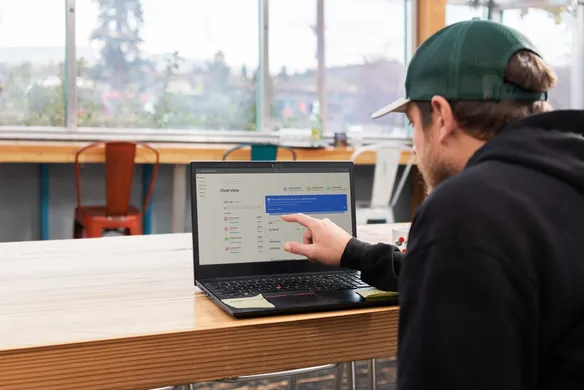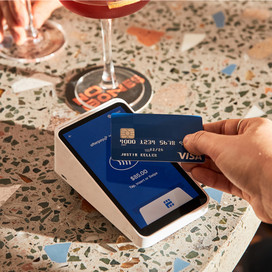Table of contents
This article is for informational purposes only and does not constitute legal, accounting, or tax advice. For specific advice applicable to your business, please contact a professional.
Applying for a small business loan can seem like an overwhelming step to securing or growing your business. But financing your business with a loan can be a way to maintain ownership of your business and take it to the next level. In this article we cover why and how to apply for your first small business loan.
Why loan money for your business?
Get clear about why you need to loan money for your business. Three common reasons for taking out a business loan include funding growth, managing cash flow or purchasing equipment.
1. Managing cash flow
You may see a delay between production and sales, where you have to pay a large sum for manufacturing before you’re able to sell your product. A loan is an injection of capital that allows you to make these payments, and run your daily operations, despite a lag in getting paid yourself.
2. Purchasing equipment
Do you need to purchase a vehicle for your business, or a piece of machinery? It can be difficult to come up with the cash for big business expenses. This is where a loan comes in, allowing you to make the purchase and pay it off over time.
3. Funding growth
To scale your business, you may find you need to expand your team or significantly increase your advertising spend. A small business loan can help support new salaries or increasing variable costs as you gain new customers and enter new markets.
Considerations before applying for a loan
Before you apply, there are various considerations to make to ensure you can service and leverage your loan.
Determine how much you need to loan
If you’re borrowing money to pay for a piece of equipment, for instance, knowing your loan amount will be straight forward. If you’re looking to close a funding gap due to cash flow issues or a growth plan, however, it’s important to create a financial forecast and budget to show how much money you need and how you intend to spend it.
Check your credit score
Your credit score, or credit rating, is an important metric lenders look at when deciding whether they feel comfortable giving you a small business loan. A credit score is expressed on a scale from one to 5 and is calculated based on the amount of money you’ve borrowed, the number of credit applications you’ve made and whether you pay on time.
There are services that allow you to view your rating for free.
Decide if you want a secured or unsecured loan
You are able to decide if a secured or an unsecured loan is better suited to your business needs. Here are the differences between these types of loans:
Secured loan
- You offer an asset for the loan, like property or equipment
- The interest rate will usually be lower than an unsecured loan
- If you’re unable to repay the loan, the lender may sell your asset
Unsecured loan
- You don’t need to offer an asset or the loan
- The interest rate is usually higher than a secured loan
- Getting approved for an unsecured loan can sometimes be more difficult
Check out loan fees and charges
As well as making repayments on your loan, you need to be aware of other potential fees and charges. These could be:
- Establishment fees, to apply for or set up your loan
- Fees for early repayment, because the lender will miss out on future interest
- Exit fees, if you decide to settle the whole amount before the loan term ends
- Any monthly fees that the lender may charge
- Valuation fees, which may be required if you secure your loan with an asset
- Penalties for late repayments
Ensure you can make loan repayments
The amount and length of your small business loan will impact how much you need to repay. Work out what you can afford to repay each month by looking at your past financials and completing your cash flow forecast.
Loan repayment options differ by amount and frequency of payments, and you can work with your accountant and a loan expert to choose a repayment structure that works best for your business.
Prepare to apply for a small business loan
Now it’s time to prepare your paperwork to apply for your loan. You will need the following:
1. Proof of business finances
Your balance sheet, income statements and cash flow statements will show your asset, liability and net worth position to determine if you can service your loans. Be prepared to be asked for copies of your Business Activity Statements (BAS), too.
2. Bank statements
Lenders will also want to see business and personal bank statements to assess your savings and lines of credit you may have, as well as your personal net worth.
3. Proof of individual income
If you’re a director in your business, have your tax returns on hand. Lenders will want to see your other income streams and assets, like investment properties.
4. Identification
Your drivers licence and passport will be required to prove your identity, and your company registration and other legal documents, like leases and partnership agreements, may be requested.
For early stage businesses, you may also be asked to show your cash flow projections and a business plan.
Work with your accountant and a loan advisor to prepare your application to maximise your chances of securing the loan that is right for you. Expert help will also support you to reduce costs, maintain your profits as you make repayments and set your business up for success as you loan!
Square Loans can help your business in your journey of growth. Discover more about how to apply for Square Loans today.
![]()











